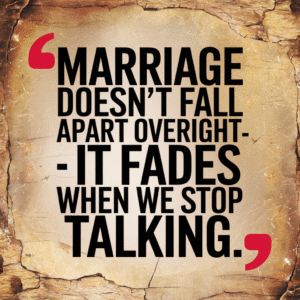Relationships, in all their complexity, are the bedrock of human connection. They bring joy, support, and shared experiences. Yet, they can also be the source of pain, confusion, and, in extreme cases, abuse. One particularly insidious form of abuse that often flies under the radar is emotional or mental abuse. Unlike physical abuse, which leaves visible scars, mental abuse wounds the psyche, making it harder to identify and address.

The Dichotomy of Love and Abuse
The old adage, “Actions speak louder than words,” holds true in relationships. Proclaiming love while consistently behaving in hurtful ways creates cognitive dissonance. For the recipient, it becomes challenging to reconcile the loving words with the unloving actions.
The Emotional Toll of Mixed Messages
- Confusion: Receiving mixed messages creates an environment of uncertainty. One might wonder, “If they love me, why do they treat me this way?”
- Self-Doubt: Over time, the person on the receiving end might start questioning their perception of reality. They may wonder if they are overreacting or being too sensitive.
- Lowered Self-Esteem: Continuous belittlement or neglect can erode a person’s sense of self-worth, making them more susceptible to further mistreatment.
- Isolation: Often, the abusive partner may try to isolate the victim from friends and family, further deepening their control and influence.
Identifying Mental Abuse
Mental abuse can manifest in various ways:
- Belittling or constant criticism
- Gaslighting (making the person doubt their reality)
- Manipulation and control
- Withholding affection as punishment
- Jealousy and possessiveness
- Threats and intimidation
Breaking the Cycle
- Awareness: Recognizing the signs is the first step to addressing mental abuse.
- Seek Support: Sharing experiences with trusted friends or family can provide clarity. Professional counseling can also offer tools and strategies to cope and decide on the best course of action.
- Set Boundaries: Clearly define what behavior is unacceptable and communicate this to the partner. If they continue to breach these boundaries, it’s a clear sign of disrespect.
- Prioritize Self-Care: Engage in activities that restore mental and emotional well-being.
- Make Informed Decisions: In some cases, leaving the relationship might be the safest and healthiest option. In others, couples therapy might help address the root causes of the abusive behavior.
Love is more than just a word; it’s a continuous action. While everyone has moments of imperfection, a pattern of proclaiming love while treating a partner poorly is a red flag. It’s essential to recognize the signs of mental abuse, seek support, and take steps to ensure one’s emotional and mental well-being. Healthy relationships are built on mutual respect, trust, and genuine affection—not just empty words.
As an Amazon Associate we earn from qualifying purchases through some links in our articles.




